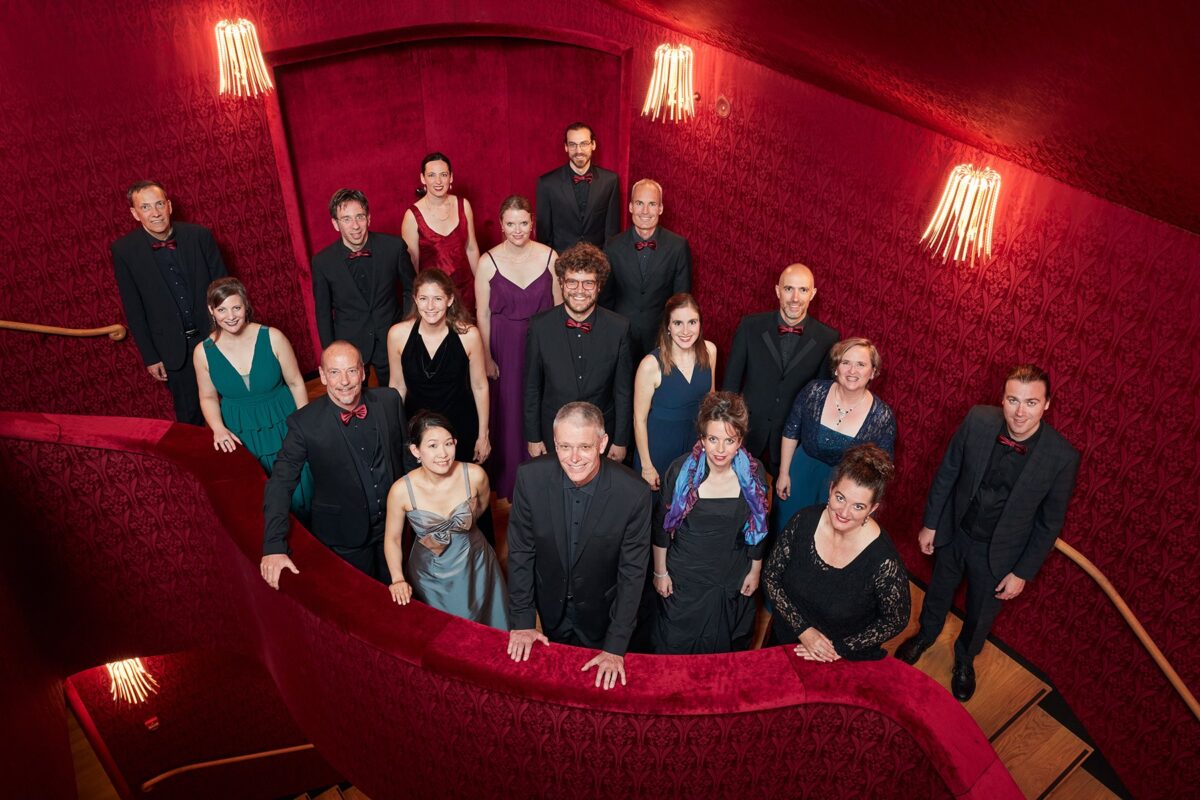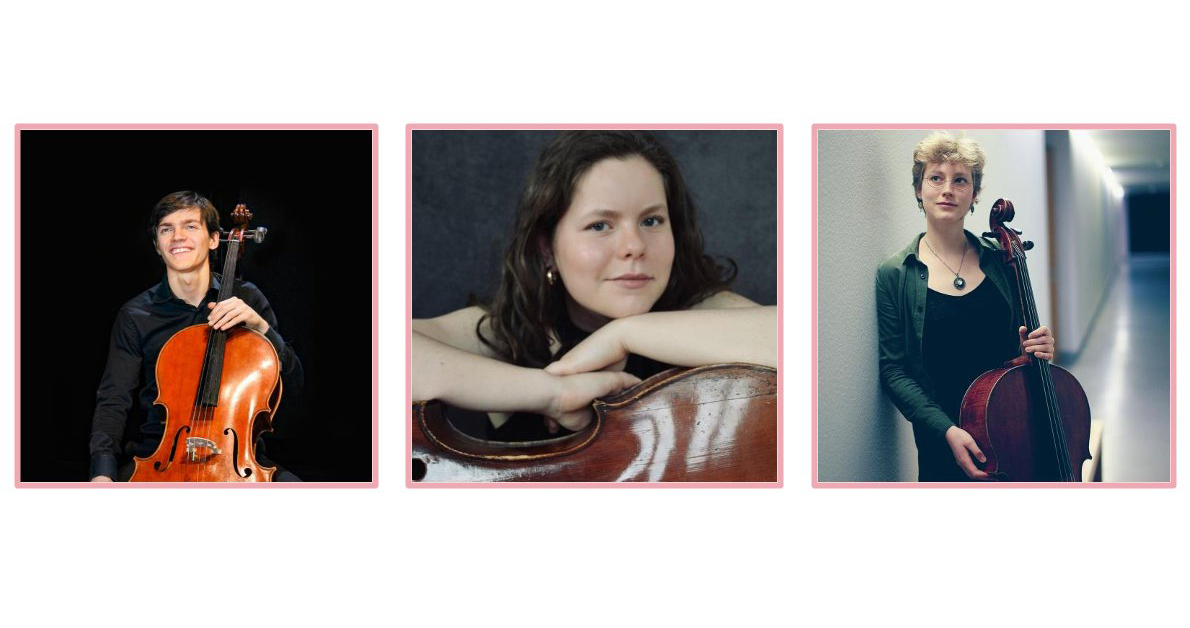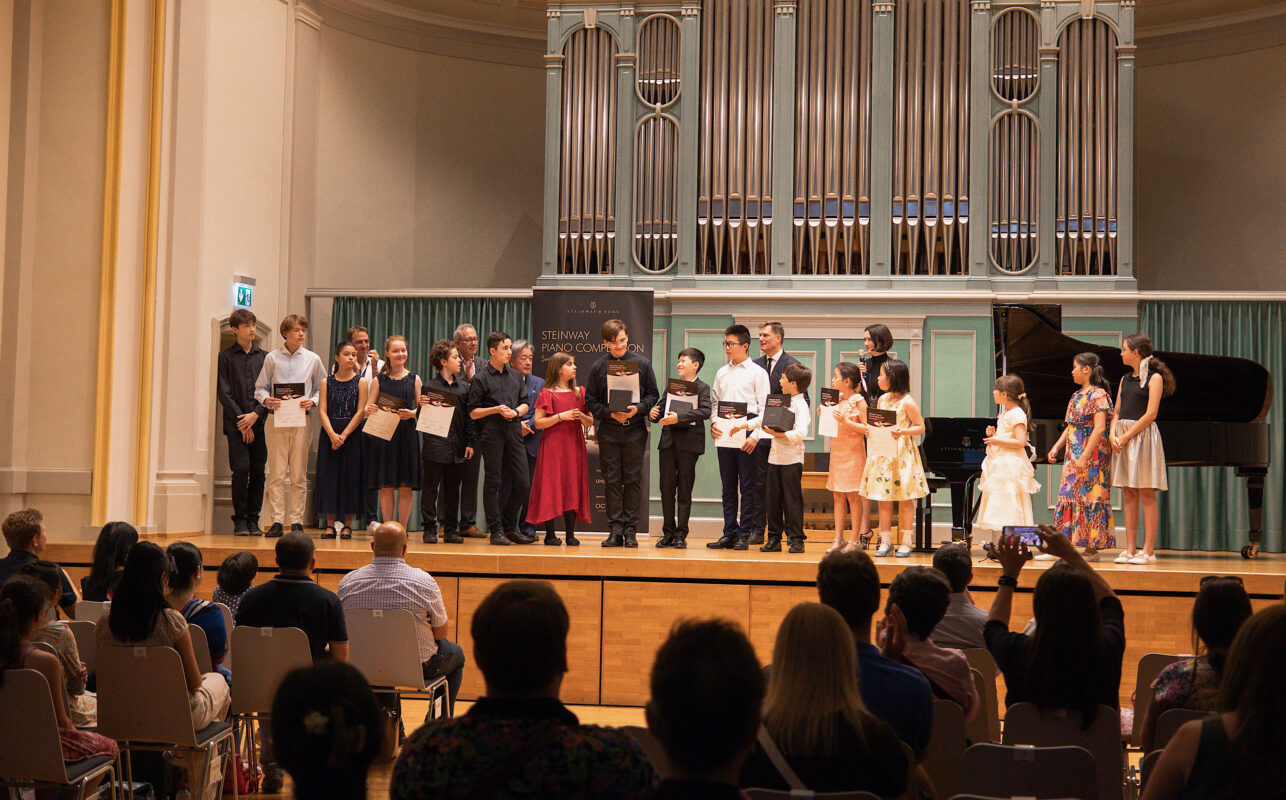Autumn in the Helferei
From September 16 to 21, the Fall Concert Week will take place for the eighth time at the Helferei. After five concerts in Zurich's Wasserkirche, the festival concludes symphonically in the large hall of the ZHdK: under the direction of Kevin Griffiths, students from the Zurich Conservatory of Music perform a romantic program together with professionals. In the middle of it all, Jens Lohmann successfully and persistently pulls the strings. A look behind the scenes.

Jens Lohmann, a violin teacher at the University of Music and Performing Arts, brings the Zurich Conservatory Music Schoola former student with: Kevin Griffiths. The 35-year-old from Zurich swapped the violin bow for the baton years ago and has since made a name for himself internationally as a conductor. He will be on the podium on September 21 when the Three Generations Orchestra performs Brahms' Symphony No. 4 and Mendelssohn's Violin Concerto in E minor as part of the Autumn in the Helferei to the performance. Dmitry Sitkovetsky is third in the group, although - for understandable reasons - not present at the talk: the Russian star violinist will perform the solo part on the concert evening.
Kevin Griffiths faces an extremely challenging task, as he has to reconcile highly motivated but still inexperienced string players with members of Zurich's professional orchestras, while neither overtaxing the one nor underchallenging the other. Another difficulty is the limited rehearsal time. This is where Jens Lohmann comes in: "The professional musicians all perform for a minimal fee, there is a huge amount of goodwill behind the project. You can't ask them to rehearse five times before the concert!" It is therefore incredibly important that the students are well prepared by their teachers, not only musically, but also in terms of their attitude towards such a project. But Lohmann can rely on a very well-functioning network of colleagues, "otherwise a project like this wouldn't even be possible!" The preparation of the sheet music alone would take a lot of time, so he is grateful that he can fall back on a set of music from the Tonhalle Orchestra's collection, where all the so-called "lines" are already drawn in. This means that all the strings move their bows in the same direction, which is not only more pleasing to the eye, but also has a considerable influence on the overall sound of the orchestra.
-
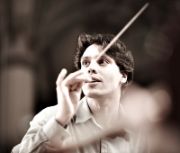
- zvg
- Kevin Griffiths
Role reversal after 20 years
For Griffiths and Lohmann, this collaboration is also special because the teacher-pupil relationship has been reversed. While the former teacher sits in the orchestra, the former pupil now stands at the conductor's desk and calls the shots. This could be a problem for other pupils, but not for Griffiths and Lohmann. The two have known each other for such a long time and, as is always apparent in conversation, have a very warm bond. Their acquaintance goes back to Lohmann's engagement with the Zurich Chamber Orchestra, where he played as concertmaster under Howard Griffiths, Kevin's more famous father. "Like many, Kevin's parents had the feeling that their son had a great talent lying dormant. Well, Kevin took his slumber very seriously, his talent was still dormant at first," Lohmann recalls with a laugh. Nevertheless, after two years of lessons, Kevin Griffiths took the entrance exam to the Basel Music Academy and passed. Despite promising prospects for a career as a violinist, he soon became more interested in conducting, although his father was very supportive, especially at the beginning of his career. "There was never and will never be a feeling of competition between the two of us, we are simply too close personally for that," explains Griffiths. "In the beginning, I had to make an extra effort to step out of my father's shadow, so to speak. It certainly helped that I was going in a completely different direction stylistically." Kevin Griffiths founded the Steve Reich Ensemble in London, for example, with which he recorded two CDs, was also "Conductor of the Year" with the Orchestra of the Age of Enlightenment, won prizes at numerous important competitions and is currently the artistic director and chief conductor of the Collegium Musicum Basel. He goes on to say that stylistic breadth has become an absolute must; nowadays, neither as a musician nor as a conductor can you commit yourself to just one style or musical epoch. However, it is important to develop one's own style and philosophy from all influences, otherwise it would seem unnatural.
When asked whether you can learn to conduct or whether you have to be born for it, Griffiths replies: "It certainly helps. I just felt comfortable with it right from the start, but of course you also grow into the task. It's a long road either way." Nowadays, the focus is on collaboration, whereas in the old days the conductor was the absolute authority, he adds. And even if he is naturally comfortable in front of an orchestra, he has to invent something new every time. The upcoming collaboration with Dmitry Sitkovetsky is also something very special for Kevin Griffiths, and he recalls: "During my time as a violinist, he was very influential for me with certain recordings, and I would never have dreamed back then that I would one day conduct a project with him as a soloist. And now it's happening twice this season. Once now, once next summer. "
Only three samples: quality before quantity
On September 15, just one week before the big concert performance, the musicians meet for the first time. This first day of rehearsals is all about the young string players. Kevin Griffiths wants to use this first rehearsal as an opportunity for the musicians, some of whom have no orchestral experience, to get to know each other and also to get rid of some of the nervousness that is sure to be present before such a big performance. The conductor's task is then to bring them together to play together, to listen to each other and to act flexibly. The section leaders, all seasoned professionals and some world-renowned soloists, will not be present at the Sunday rehearsal. "If one or two of them are interested in how Kevin works with the young people and drop by, then of course I'm delighted," says Jens Lohmann, "but I can't ask them to do so, after all, they are already performing for a minimal fee in view of an interesting educational experience." He attaches immense importance to this first rehearsal, as it is important to build a bridge from there to the first tutti rehearsal: "On Thursday, everything has to be perfect, then the professionals come in and we no longer have time to discuss details," he looks ahead. "However, having colleagues from the ZHdK, Tonhalle and MKZ take over the voice leading will also make things easier, as the young people can then be guided." And so that they are not overwhelmed by the tempo, Lohmann wisely lets them start an hour earlier: "By the time everyone has unpacked their instruments, by the time the string section is in tune, by the time we have played one or two passages again, an hour is up." He speaks from experience and has already conducted many orchestral projects.
-
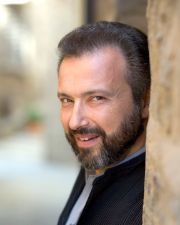
- J. Henry Fair
- Dmitry Sitkovetsky
Dmitry Sitkovetsky - and the next generation of artists
At the main rehearsal, another important player joins the project: Dmitry Sitkovetsky, the Russian star violinist. Jens Lohmann was able to engage him through a mutual acquaintance on the occasion of a master class at the Lucerne School of Music. In addition to his career as a solo virtuoso, Sitkovetsky also serves as artistic director of the symphony orchestra in Greensboro, North Carolina. Compared to the relatively short time of its existence, this orchestra maintains an extremely rich program for music education for children, young people and adults. Sitkovetsky therefore knows what to expect. He himself is the fourth generation of a Russian musical dynasty, so he had a very different introduction to music. At the age of six, he entered the famous Tchaikovsky Conservatory in Moscow and later studied at the equally renowned Juilliard School in New York. In his day, there were no opportunities for children or young people to play together with adult professionals. This makes working with the next generation all the more important to him today: "I think it's very important to create more connections between the generations. Music, especially playing together in an orchestra, is the only communal experience in our society that is able to overcome all barriers: race, nationality, gender, religion, age, politics. And the more often the established musicians come into contact with the younger generation, the greater the chances that music can develop at all." He also sees no difference in the importance of music for the individual between aspiring professional musicians and dedicated amateurs, and his message to the young musicians in the project is accordingly: "Music is something you can live with all your heart, regardless of whether you become a hobby or professional musician. Unlike the material things in life, music is something fleeting, but at the same time it means that nobody can take it away from you - it's like a treasure in your soul. Immerse yourself in this world, try your best in this concert project and - most importantly - have fun!"
The pupils of MKZ, aged between 12 and 22, will certainly take this to heart. They are looking forward to the concert, but also treat the project and its main protagonists with great respect and at the same time think about their musical future. Sixteen-year-old Katharina Schade plays the violin herself and is therefore particularly excited about Sitkovetsky's interpretation of the Mendelssohn Violin Concerto: "Experiencing him up close and accompanying him will certainly be a great experience!" She often listens to Brahms' Fourth Symphony on the go and practises the works with the aim of arriving at the first rehearsal very well prepared. Commenting on her musical career, she says: "To become a professional musician, you have to put all your eggs in one basket at a very early stage. However, this means that many other, possibly equally exciting development paths remain closed. However, I don't want to rule out a musical career at this stage." Her colleague Solvejg Wilding, 15, on the other hand, clearly sees her professional future in music: "She definitely wants to study music and make it her profession, probably in a pedagogical direction. Another dream would be to play in a string quartet. She is also looking forward to the concert: "It is of course a great honor to be able to play with these musicians and hopefully benefit a little from them." Demian Herzog (19) plays viola in the orchestra and also plays jazz piano. Music means everything to him, even if he doesn't yet know whether he wants to make this passion his profession one day. He is delighted to be able to play in front of a demanding and large audience and also takes a look behind the scenes: "Jens Lohmann is not only an excellent teacher, but also organizes a very interesting concert week. However, this can only work thanks to extremely good planning, for which I respect and admire him."
Not entirely alone and not unnoticed
Jens Lohmann can also rely on a good network for project organization. An adult MKZ student, an engineer by training, he can look back on many years of experience in project management and takes care of most of the administrative tasks. He is part of an organizing committee of six people who meet every two months during the year. The closer the festival gets, the shorter the intervals between the individual meetings. In addition to the actual project organization, the main focus is on raising money via sponsors. Lohmann knows his way around the contracts with the artists; after all, he works on both sides, as an artist and as an organizer. Since 2006, 55 concerts have taken place under the title "Herbst in der Helferei". Gradually, the small but excellent festival has become firmly established in the public consciousness and has already become a fixture in Swiss music and cultural circles. Mario Venzago, a world-renowned conductor, finds it gratifying to see a tradition of creating and communicating inspiring music in the heart of Zurich. Particularly at a time when festivals are springing up like mushrooms (and are usually unpalatable), he enjoys the hallmarks of this festival: a limited variety, a defined style, plus the desire for difficult combinations in conjunction with valuable works and performers. He is particularly touched by the fact that the organizers take on the risk of forming an orchestra from a collective of individual and talented people: "I wish the organizers that the 'Mystery Orchestra' succeeds, so that the inexplicable happens when strange musicians suddenly understand each other and come together to breathe, sing and feel the same way. This is a small miracle every time and ideally results in everyone - listeners and performers - leaving these musical encounters of today and tomorrow as the others they came as."
Autumn in the Helferei - 2013 in the Wasserkirche
Musical encounters of today and tomorrow
September 16 to 21, 2013






